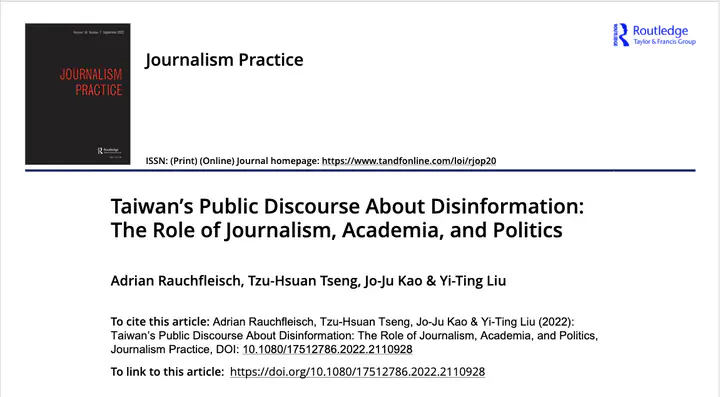Taiwan’s Public Discourse About Disinformation: The Role of Journalism, Academia, and Politics

Abstract
Experts have ranked Taiwan as the number one country regarding the exposure to disinformation. This assessment is not surprising as many exposed disinformation cases can be linked to Chinese state-aligned actors but also domestic political actors. Academic researchers, journalists, and the civic tech community have played an essential role in the fight against disinformation in Taiwan and the emergence of misinformation studies as a new research field. While disinformation in Taiwan is a major recurring issue, the “Western” debate within academia and journalism has taken a critical turn regarding the assumed effects of disinformation. Our study focuses on this potential disconnect between the international and the Taiwanese debate about disinformation. With automatic and manual content analysis, we evaluate what role academics and journalism play in the public discourse and what part of this debate reaches the largest audience. We show how Taiwan’s public misinformation discourse has evolved vis-a-vis the international discourse, what role misinformation studies play in this discourse, what part of the discourse reaches the widest audience, and what parts of the discourse could be problematic.